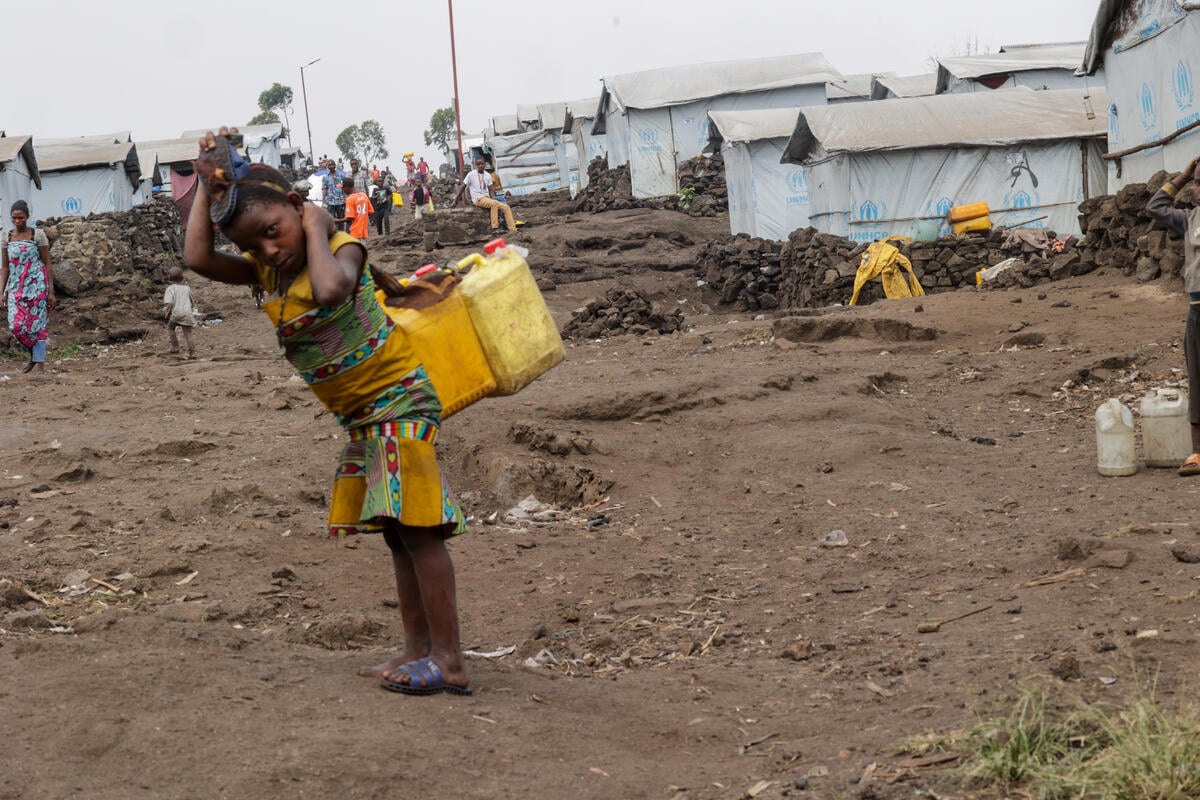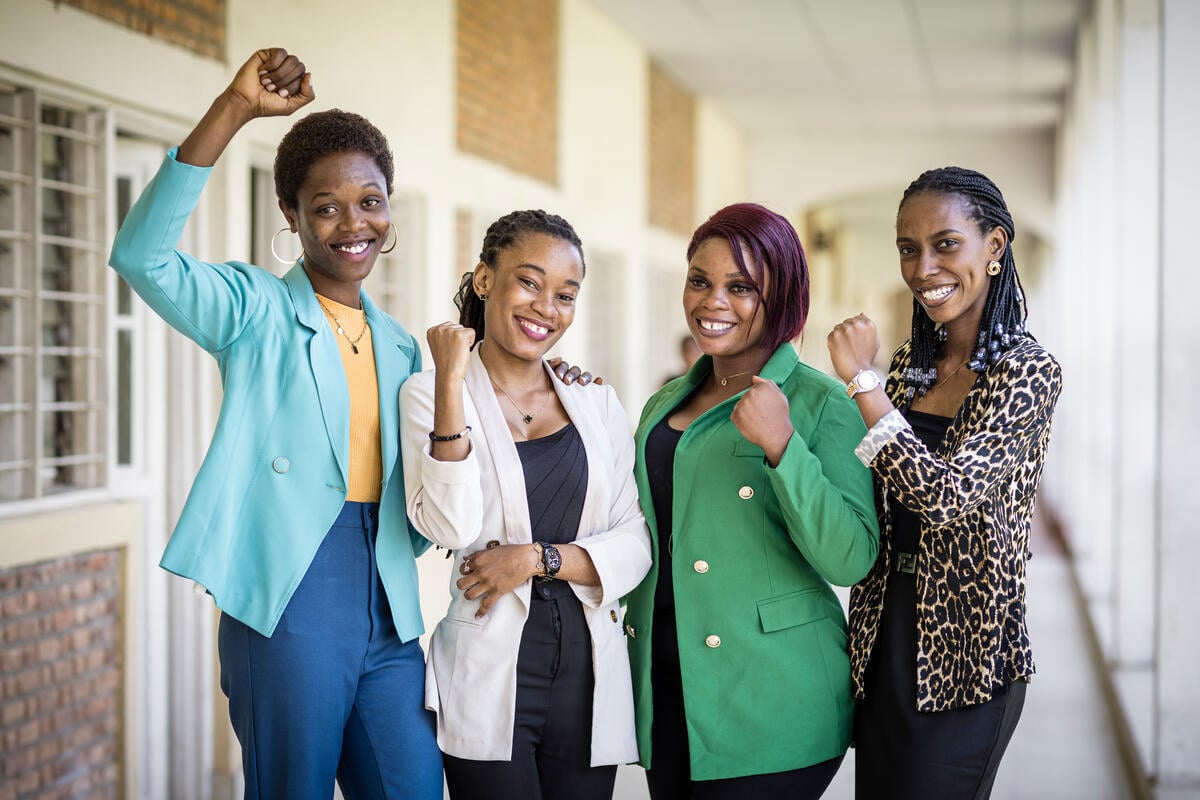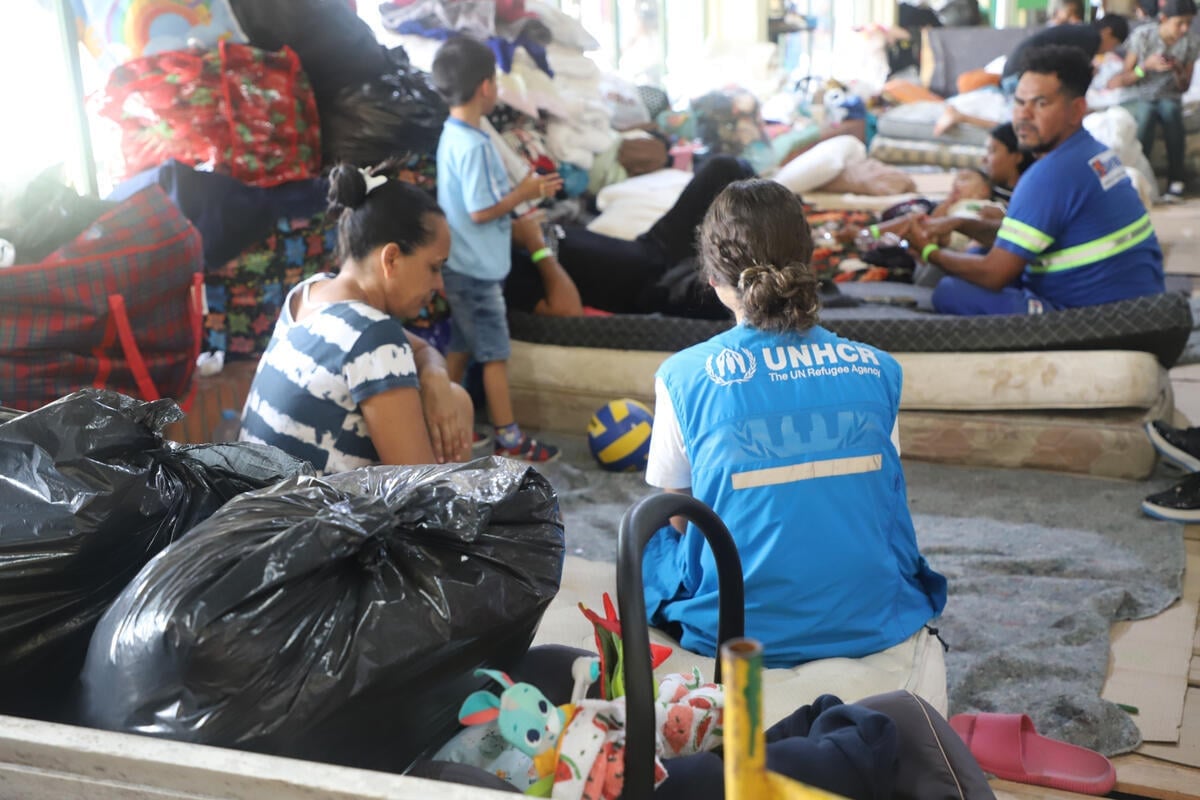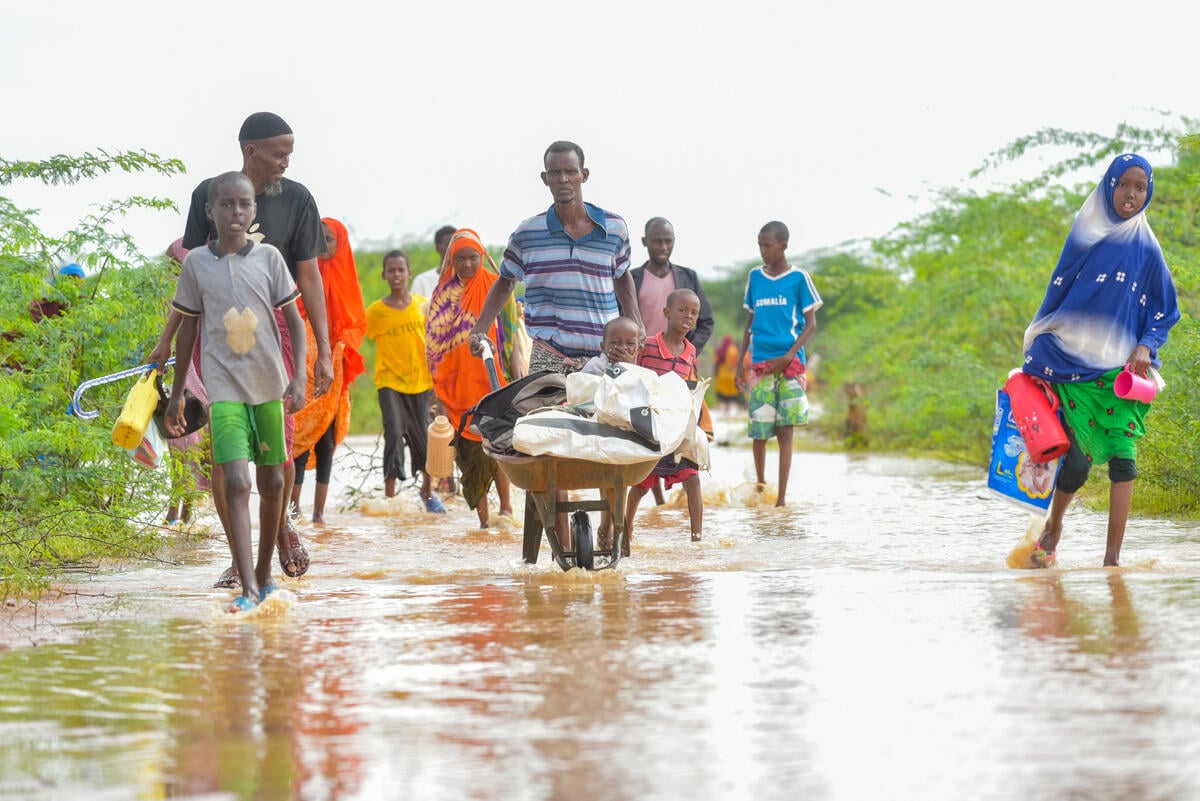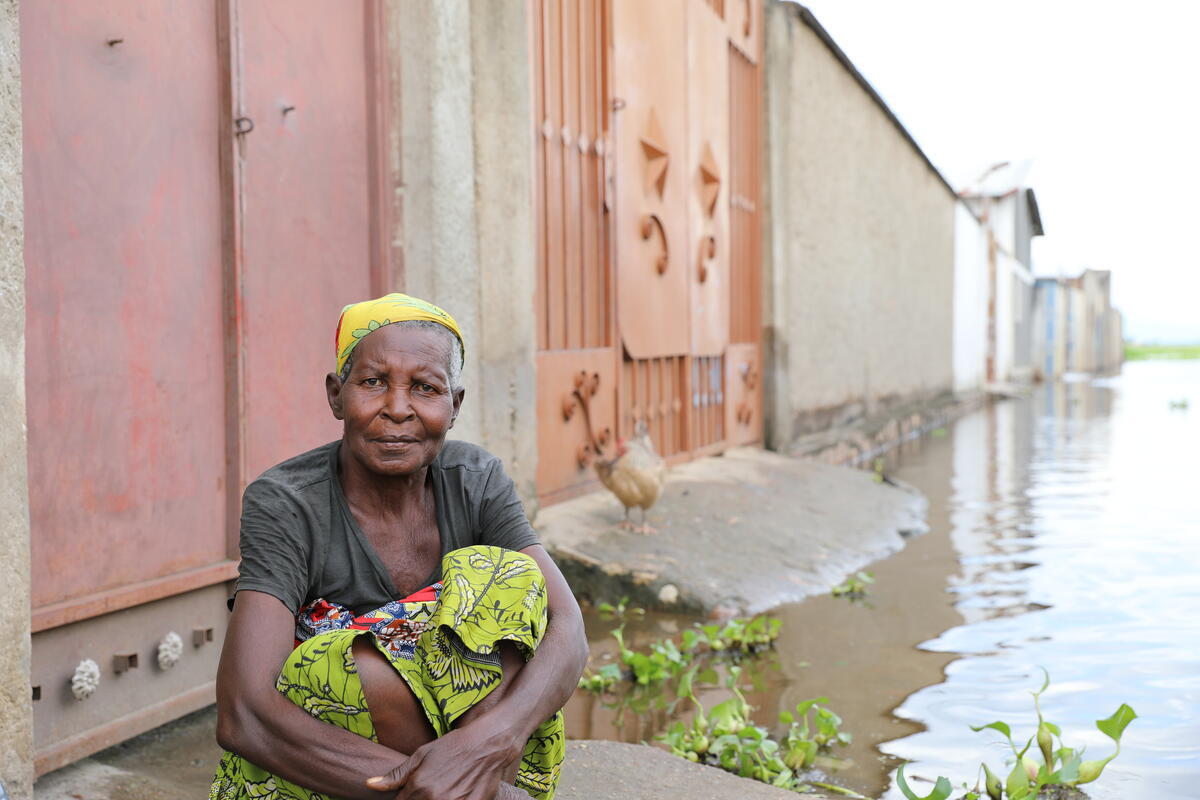Burundians restart their lives with empty soda bottles, goats in scarves
Burundians restart their lives with empty soda bottles, goats in scarves

MABANDA TRANSIT CENTRE, Burundi, November 29 (UNHCR) - When he had to leave Mtabila Refugee Camp in Tanzania to come home to Burundi, eight-year-old Peregi Nyandwi brought his most prized possessions with him: his three pet rabbits.
Now sitting in the UNHCR transit centre close to the border, headed for his village, he's strumming a home-made guitar, the most treasured item that his 19-year-old brother brought along. Peregi takes a break from music making to reach into a green plastic basket to show off one of the rabbits, holding the squirming animal by the scruff of the neck.
What the refugee returnees - given until the end of the year to come back to their home country - chose to bring with them says a lot about how they plan to restart their lives in Burundi.
"They take everything they own, especially the things that are most valuable to them," says Maguelone Arsac, who has been helping new arrivals since UNHCR, the International Organization for Migration and other partners started helping them return in late October.
The UNHCR community services officer was struck one day by the number of returnees disembarking with hamsters in cages. Unlike Peregi's pet rabbits, the rodents were food. Another day, many were carrying pineapples.
"They give us energy," explains one man, with a family of six in tow. "We didn't know the process and we didn't know whether we would get anything to eat," so they brought their own pineapples. To his relief, all the returnees got not only a hot meal, but also medical treatment if needed, as well as a night's rest before UNHCR transported them to their home villages.
Children bring footballs made from plastic bags bound with twine, and get off buses with the glass bulbs of hurricane lamps strung around their necks like giant necklaces. Mothers bring broken plastic basins - battered but still serviceable. One man carefully balances two long fluorescent light bulbs.
Plastic cases full of empty soft-drink bottles come along as capital for future small businesses. Returnees bring any furniture they own - sometimes made of old vegetable oil tins - and even parts of their dismantled houses from the refugee camp.
Explaining why he brought back a battered set of wooden doors, 43-year-old Athanase Nduwimana, returning with his wife and seven children, explains: "when I arrive at my area, I will build a small house for a separate kitchen and I will use these for the doors."
Perhaps most precious to people who will farm back in Burundi are their animals. Cows and pigs come back with the returnees - in separate trucks - as do goats wearing colorful scarves so that their owners can tell them apart.
A middle-aged Christian pastor, Prime Habonimana, proudly brought home his large black bull, the legacy of a 2004 UNHCR programme in Tanzania that gave cows to refugees on the condition that they pass on the first calf to other refugees.
"It has a big value," he explains, taking a break from feeding the bull, "because where I was, there were many cows and if anyone wanted to mate them, they had to pay me 20,000 Tanzanian shillings (about US$12 - a huge sum for a refugee)." He named the bull Ziada, a Kiswahili word meaning "additional," because he viewed the bull as "something extra, a blessing" he had received from the UNHCR programme.
Meanwhile, still waiting for his older brother to pick up the family's UNHCR-issued rations, Peregi continues to strum the guitar, made from a recycled vegetable oil tin from refugee camp rations.
He sings a hymn of supplication whose words, translated from Kirundi, go something like this: "We pray to God to help the people all the time." It is, he reckons, the right song for this time and place.
By Kitty McKinsey in Mabanda Transit Centre, Burundi


